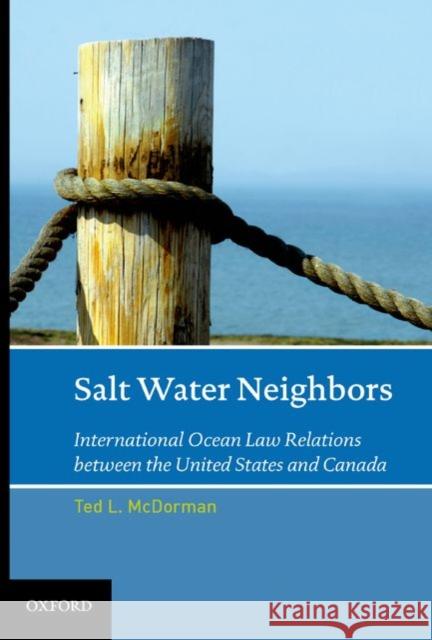Salt Water Neighbors: International Ocean Law Relations Between the United States and Canada » książka
topmenu
Salt Water Neighbors: International Ocean Law Relations Between the United States and Canada
ISBN-13: 9780195383607 / Angielski / Twarda / 2009 / 416 str.
The United States and Canada are salt water neighbors on the Atlantic, Pacific and Arctic Oceans. Despite the general closeness of the political, economic and social relationship, the two States have approached their offshore areas from different perspectives. Canada has long supported expansion of exclusive national control over its adjacent offshore; whereas the United States has been concerned with the balance between national authority and international navigation rights. Canada has tended to view maritime disputes with the United States as local matters; whereas the United States has tended to see the disputes with Canada in global terms.
Against this background, Salt Water Neighbor's examines both the international ocean law disagreements that exist between the United States and Canada respecting maritime boundaries, fisheries and navigation rights (e.g., the Northwest Passage) and the numerous cooperative bilateral arrangements that have prevented these disputes from being significant causes of friction between the neighbors. There has not been a comprehensive book-length study of United States-Canada international ocean relations since the early 1970s. Much has changed in the last 30 years. Most importantly, the law and the nature of the disputes between the two States have changed as a result of the adoption of 200 nautical mile zones in the late 1970s.










